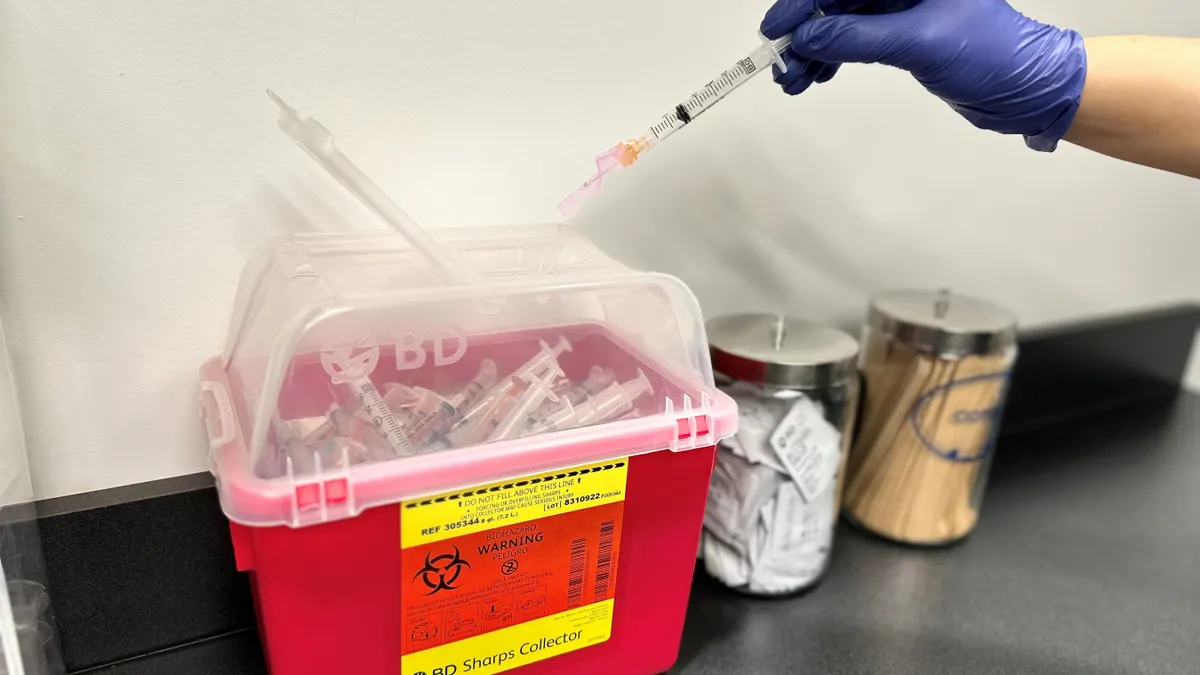Dive Brief:
- BD has recycled 40,000 pounds of medical waste through a circular economy pilot project it ran with Casella Waste Systems.
- During the first half of the year, the collaborators assessed the feasibility of recycling medical waste found in red sharps containers, boxes that healthcare facilities use to dispose of materials such as syringes and needles.
- BD and Casella collected medical waste from a range of healthcare facilities and recycled the plastic components in the boxes. The partners are expanding the pilot to additional locations.
Dive Insight:
Historically, medical waste initiatives have focused on ensuring materials are disposed of safely, rather than minimizing the environmental impact. U.S. healthcare facilities generate 14,000 tons of waste a day, around 20% to 25% of which is plastic, according to one estimate. Only a fraction of the plastic waste is recycled.
BD, a manufacturer of syringes and other disposable plastic products, has worked with Casella over the past decade to recover, process and recycle waste from its own sites. Casella helped BD to recycle unsellable products such as off-specification syringes and manufacturing waste. The next phase of the collaboration started earlier this year, when the partners expanded their focus.
Under the expanded collaboration, BD and Casella assessed the feasibility of recycling syringes discarded by healthcare facilities back into the manufacturing process. BD framed the initiative as a way to create “additional local sourcing options” and ease “pressures on the critically challenged supply chain system.”
Initial results of the pilot show the partners recycled 40,000 pounds of medical waste. The pilot assessed the technical feasibility of two types of technology: mechanical and advanced recycling. Both techniques showed “favorable results in their ability to successfully recycle used medical devices for use in other products,” according to BD.
The pilot persuaded BD and Casella to expand the scope of the project. In the next stage, the partners will “expand regionally to additional hospitals and non-acute care facilities” and “cover other types of medical materials for recycling, as well as reclaiming the used devices and returning them to the manufacturing process,” BD said.










